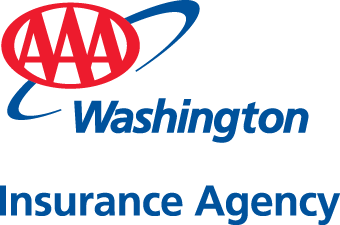Learn how term life insurance works, plus important considerations for you and your family
Shopping for life insurance is one of those things that we all need to do, yet often postpone for another day. It can be confusing, a little overwhelming and also sad. We know in our hearts that it’s an important task—and something that we shouldn’t put off.
As you begin your search for the right life insurance policy, make sure you know the basics of life insurance, especially the benefits of term life insurance vs. whole life insurance.
Major life events, such as having children, changes to family caregiving needs, starting a business or buying a home, often mean that more people rely on you. For example, if you become a caregiver for your spouse or if you have dependent adult children, you’ll be thinking about how to support them if you pass away. This is where life insurance can make a difference.
Here are the types of life insurance that you should be familiar with:
- Term life insurance is for a fixed term of anywhere from 10 to 30 years. Once the term ends, the policy disappears.
- Whole life insurance covers you until your death, and will pay out a guaranteed amount once you die to named beneficiaries.
- Workplace/employer life insurance is part of your employee benefits package.
There are pros and cons to each type of insurance. So, it is worth looking at each one in a little bit more depth.
In this article, we’ll cover the basics of life insurance. We’ll also explain how to shop for life insurance, how a AAA insurance agent can help, and how to get a medical.

1. Term life insurance
As the name implies, term life insurance doesn’t last forever. Term life insurance is purchased in a term length of anywhere from 10 to 30 years. When the term ends, so does your coverage. The policy doesn’t accumulate value over time.
2. Whole life insurance
Also called permanent insurance, whole life insurance covers you until your death. Whole life insurance offers a guaranteed payout. You may also be able to withdraw money from the policy later in life, depending on the plan. However, whole life costs much more than term life.
3. Workplace or employer life insurance
Workplace life insurance—also known as employer life insurance—is part of an employee benefits package. It’s directly tied to your job.
This type of life insurance ends when your work benefits stop. If you leave a job, get laid off or begin retirement, your workplace life insurance also ends.

Term Life or Whole Life: How do they compare?
In this section, we’ll review the benefits of term life insurance vs. whole life insurance.
Term life insurance benefits
Term life insurance is more affordable than whole life, and it offers the same basic protection. Keep in mind that once your policy term is over, your coverage ends, and you receive nothing. Your policy only pays out if you pass away during the term period.
You may want to consider term life insurance if:
- You have a smaller or limited budget
- You’re not ready to invest in whole life insurance yet
- Your family or business would have difficulty covering expenses if you were to pass away unexpectedly
If this is an option you’re considering, there are two other types of term life insurance to ask an insurance agent about:
A) Return of Premium Term Insurance
With this type of policy, which is more expensive, you get your money back when your term life policy expires. Think of it like a savings account that doesn’t pay interest. If nothing happens before the term limits expire, you will receive these funds back. You’re still buying life insurance, but at the end of the term you get all the money back that has accumulated into this account.
B) Converting Term Life into Whole Life
In some cases, it’s possible to convert a term life policy into a whole life or permanent life insurance policy—with no additional medical questions or screening. This is called a conversion privilege and is only available with specific term life policies.
Whole life insurance benefits
Whole life insurance offers benefits that term life insurance doesn’t, but costs more.
Whole life insurance offers a guaranteed payout. Many policies also have the option to withdraw funds. Here are two examples:
- Some policies can help with healthcare costs that come before the insured person’s death. Depending on the policy, you may be able access 50 to 90% of your insurance payout (also called a death benefit) to deal with the financial stress of a terminal illness.
- If you don’t have a terminal illness, some policies allow you to take 25 to 50% of the death benefit early if chronic or critical illnesses cause financial hardship.

How life insurance works
In this section, we’ll take a quick look at getting a medical, plus some basics about how life insurance works and the role of a AAA agent.
Getting a medical
In almost all cases, you must pass a medical exam to qualify for life insurance. While a medical seems daunting, remember that there is no cost to you. Insurance companies pay for the medical and there is no obligation to purchase insurance.
The medical itself is straightforward. A licensed medical professional will come to your home or business, draw blood, take a urine sample, ask basic questions and then you’re done. It takes 20-30 minutes.
How an insurance agent can help
Working with an insurance agent should be a friendly and gradual process. It shouldn’t be purely transactional. (If the process is confusing, don’t hesitate to reach out to a AAA agent. They’re always happy to help .)
Your insurance agent is the person who your family will call when you pass away—when they are suffering grief and loss. A good insurance agent will be there to support them and reduce some of the stress of this difficult time. Most importantly, they will work to ensure that your life insurance policy is paid promptly and accurately. If there are any issues, your insurance agent will advocate for your family.
A life insurance payment should be as straightforward as possible for your family and beneficiaries. When you’re choosing insurance, consider how easy it will be for them to get in touch with the right people when the time comes.
Reviewing your life insurance needs
Choosing the right type of life insurance for your situation and budget can be a lot of work. This is when an insurance agent can help the most. They work with you to find the best policy and pricing for your needs—they do the legwork.
To explore your options, and learn more about term life insurance as well as whole life insurance, connect with a AAA agent here.

